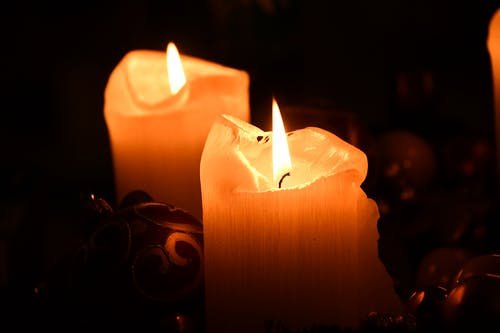Faith & Leadership: Befriending Your Limits
Part of effective Christian leadership is learning when to reach beyond and when to accept our own limitations. A spiritual director offers some thoughts and advice on how to do that. This article was first published on 7 Mar 2017 in Faith & Leadership from Leadership Education at Duke Divinity. Editor's note: This reflection is adapted from Rahberg’s book, “Enduring Ministry: Toward a Lifetime of Christian Leadership.”
Reader's Poem: Living With Contradiction
It is curiously liberating to realize that tensions become life-giving. Christ walked in constant awareness of the world’s pain and beauty. I must accept myself in contradictions and contradictions in me. In Christ all things are held together. Recognize Christ’s love. Let yourself receive that love.
Good Zeal (Rule of Benedict, 72)
Benedict of Nursia (ca. 480-547) is one of the voices from Christian tradition who continues to help us understand what it means to walk together toward Christ the Light. The grand finale to the Rule of St. Benedict (RB) comes in chapter 72 on the topic of what Benedict calls "good zeal". (Bit of trivia: scholars agree that RB 73, the actual last chapter, functions as a bibliography). Having reached the bookend of all the wisdom collected in previous chapters, we might rightly wonder about Benedict's punch line for this vision of life in Christian community.
Poem: Ceaseless Prayer
What is the point of discipleship
if not to live truthfully
in the Divine Presence,
to make our way, ready for thein-breaking of God’s grace?
Like desert monks we saturate
ourselves with Scripture
that we, too, might dwell in the Word
and put on the mind of Christ.
We who practice
receiving God’s touch
and waiting through its absence
cannot resist meeting joys and challenges
with more and more transparency.
Centeredness wells up
as biblical words and symbols
begin grounding priorities and decisions
in something other than mere ego.
The fullness of Christian life
spills over, then,
into convictions and actions
that serve the greatest good.
Call it prayer, call it lectio,
but do not let it be confined
to quiet moments before dawn.
Befriending Your Limits
By the time you find yourself drawn to the phrase "befriending your limits," you have likely built a home between a mountain and a shoreline. The desire to seek new perspective may well be an invitation that involves some element of discomfort . . . and a dash of hope. This peculiar mix suggests to me that God is at work and that it is time to pay attention. We cannot help but respond with honesty.
Poem: Woodland Love
There is a beauty to these woods
that surpasses even the twilight
sound of the Great Horned Owl
or the crescent moon spilling stars
onto cedar tops and pines.
I Smell Gas
In this particular situation, and in contrast to other interactions I have had in ministry settings, I was able to quickly and clearly hold my ground. I said, "I do smell gas, in fact, and I need help finding a solution." This refreshing moment of clarity reminded me that it is not always so easy to hold the ground of true self. In the flow of life, we sometimes catch ourselves doubting what we smell. We might initially attempt to ignore it or succeed in explaining away our sensations for a time. When the smell still persists, however, we begin to second guess ourselves, occasionally surrendering our perspectives too quickly because someone has pressed against our convictions. To underestimate or fail to exercise our perspectives faithfully is to drift away from the authentic, Christ-centered self.
How Do Our Limits Set Us Free?
We all have limits. It is an undeniable truth for every member of humankind. Whether we understand them to be the end of our capacities or the boundaries of our identities, we know the discomfort that accompanies the attempt to exceed them. Were discomfort the only outcome, we would simply discount them as inconveniences and pretend to avoid them. That would, however, dismiss the potential appreciation for limits that Benedict has been encouraging since the sixth century. In Ch. 4 of the Rule he urges the reader, “Day by day remind yourself that you are going to die”
Poem: Living Waters
We are pails of many colors
shapes and marvelous designs,
searching for somethings—anythings
which will fill us to the brim,
sharing one unfortunate flaw:
We are pails of many holes.
The leaks of imperfection
worsen by hurts and fears
until more is lost than
gained by fetching.
“Pour life into me,” we cry,
“which I might hold and carry.”
and when all passes through
we weep, “If only this or that,
a bit more and fast, then
I would have life to give.”
All the while something
quietly wells up,
a flood rising all around
seeps into every pail,
entering first low openings.
Now within and around
still rising a tide consumes the world.
Higher it flows, fills pails
outside in,
up to the brim, then beyond.
Feigning emptiness we miss this:
we are holy pails submerged
in living waters.













